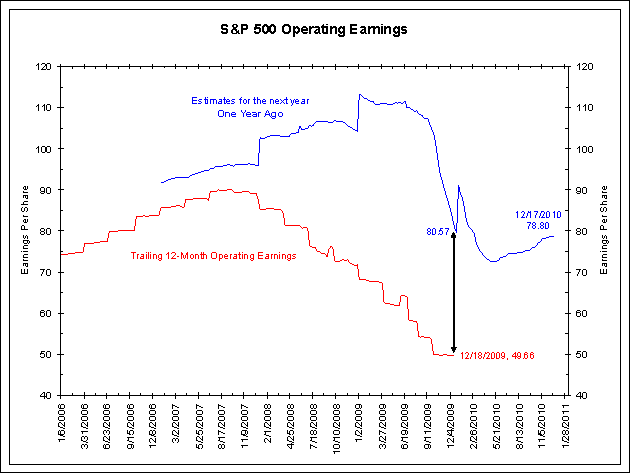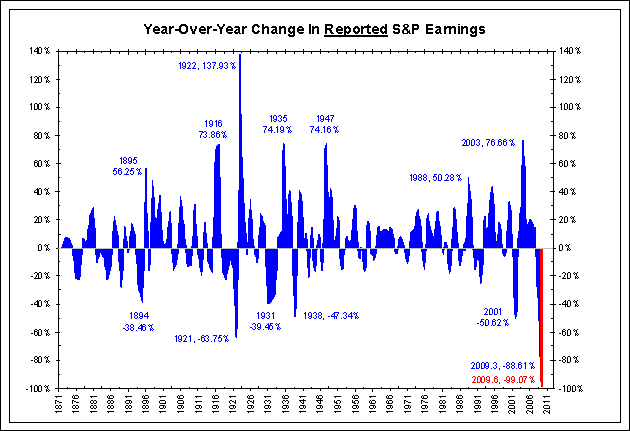- The Big Picture (blog) – Time Capsule Post (2010 Forecasts) — Open One Year Hence
I hereby invoke Bob Farrell’s Rule #9: When all the experts and forecasts agree — something else is going to happen.
<Click on chart for larger image>
Comment
<Click on chart for larger image>



According to the table above, the median estimate for 2010 earnings is $73.69. This is very close to the median estimate of $78.80 as surveyed by Bloomberg, which uses a larger sample set.
The chart above shows actual S&P 500 operating annualized earnings in red. The blue line shows the estimate for next year’s S&P 500 operating annualized earnings. It is moved forward one year to line up with the actual results.
One year ago the economy was in the midst of the worst recession since the 1930s. Panic was in full bloom. Strategists estimated 2009 operating earnings would be $80.57. The actual number came in at $49.66, a miss of 38.4%.
Now that many believe the recession is over and the markets are healing, the consensus has a one-year forward estimate of $78.80, worst than their estimate when the financial world was coming apart. This is not exactly a model of consistently.
How good are these estimates? The short answer is they are completely and utterly useless, and maybe not even that good. Note that the blue line of one-year forward estimates is always more than the red line of actual results. This is not a surprise, but as we noted in September, the estimates are getting worse:
Earnings forecasts are worse now than at any time in human history. As the chart below shows, the decline in earnings in the last year was worse than any decline in the last 140 years (again, no typo). The data comes from Robert Shiller who got it by way of the Cowles Commission.
Do you recall anyone forecasting a biblical collapse in earnings? We do not. In fact, Dr. Jeremy Siegel set records in tortured logic to explain this was not happening last February.
Rather than writing about rebounding earnings, a more interesting story might look into why consensus estimates have been so horribly wrong lately. Do the forecasters understand the degree to which they missed, and have they changed their methodology at all to avoid a similar fate should this happen again in the future? Only when these questions are answered should anyone pay attention to these highly inaccurate guesses.
These same conclusions still apply.